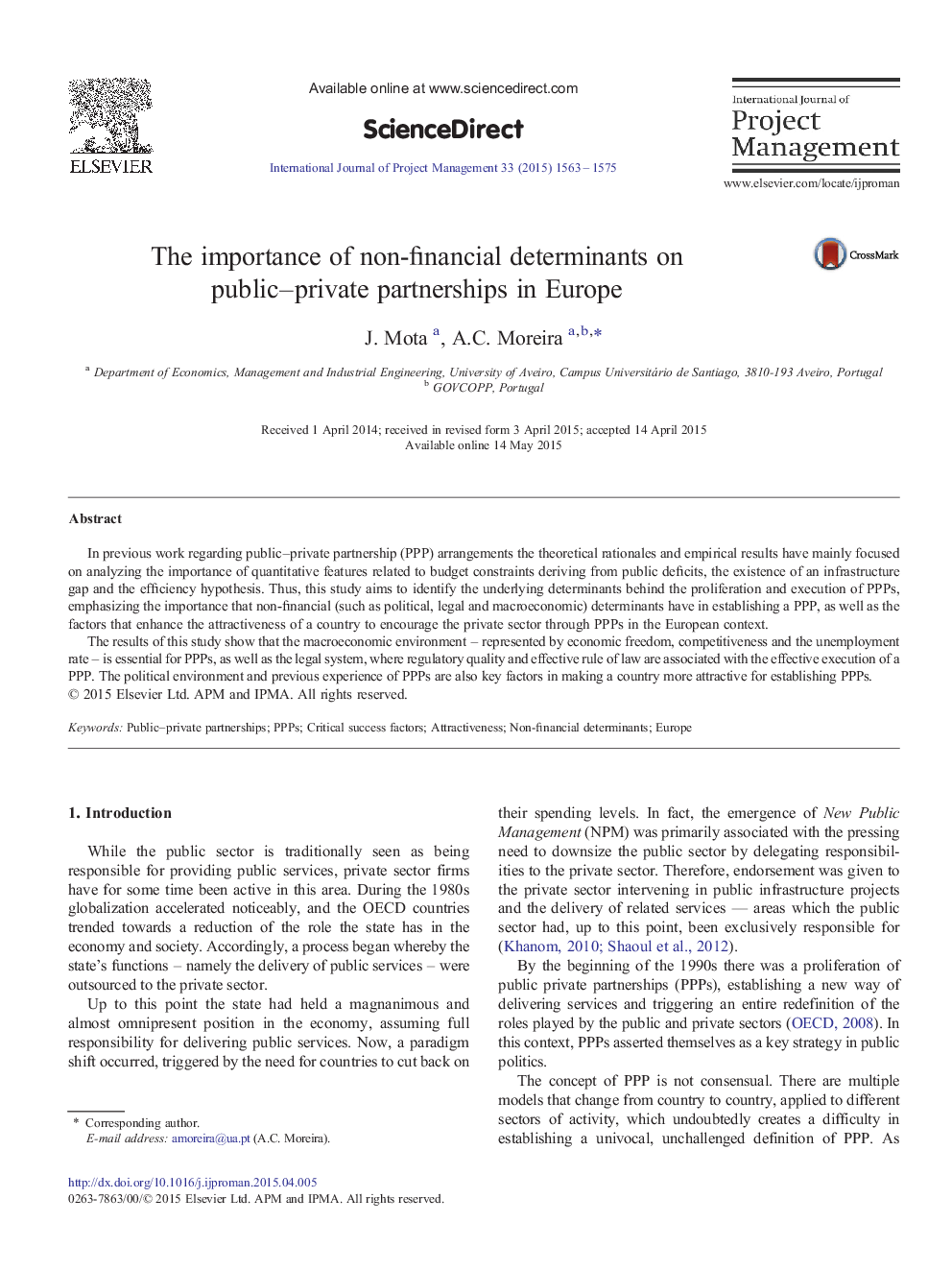| Article ID | Journal | Published Year | Pages | File Type |
|---|---|---|---|---|
| 275565 | International Journal of Project Management | 2015 | 13 Pages |
•We analyze the determinants of PPP arrangements for a sample of European countries.•Emphasis is given to non-financial (political, legal and macroeconomic) determinants.•Economic freedom, competitiveness and the unemployment rate are essential for PPPs.•Effective rule of law are associated with the effective execution of a PPP.•The political environment and previous experience make countries attractive for PPPs.
In previous work regarding public–private partnership (PPP) arrangements the theoretical rationales and empirical results have mainly focused on analyzing the importance of quantitative features related to budget constraints deriving from public deficits, the existence of an infrastructure gap and the efficiency hypothesis. Thus, this study aims to identify the underlying determinants behind the proliferation and execution of PPPs, emphasizing the importance that non-financial (such as political, legal and macroeconomic) determinants have in establishing a PPP, as well as the factors that enhance the attractiveness of a country to encourage the private sector through PPPs in the European context.The results of this study show that the macroeconomic environment – represented by economic freedom, competitiveness and the unemployment rate – is essential for PPPs, as well as the legal system, where regulatory quality and effective rule of law are associated with the effective execution of a PPP. The political environment and previous experience of PPPs are also key factors in making a country more attractive for establishing PPPs.
